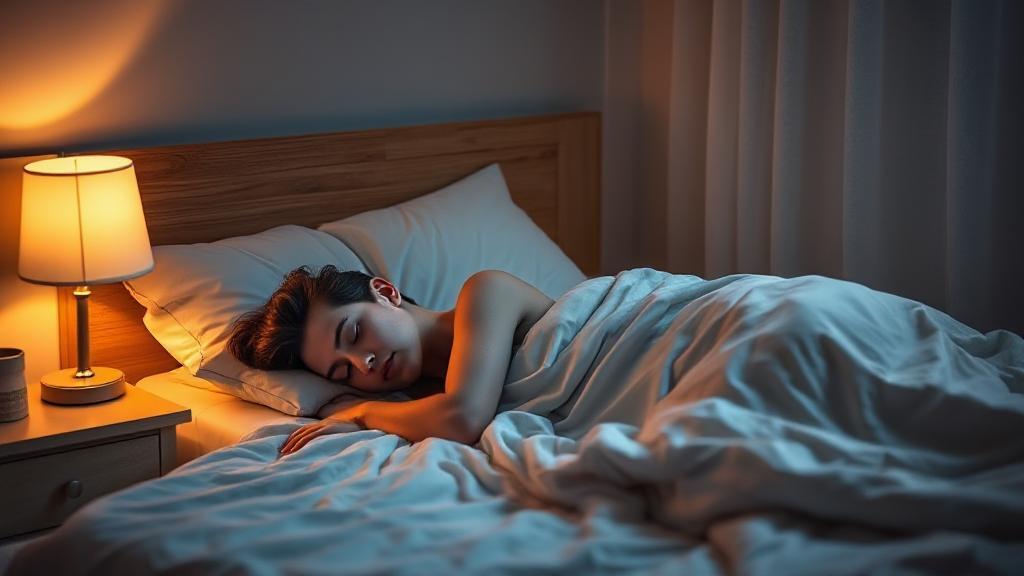Why Sleep Quality Matters
Sleep is a cornerstone of good health, impacting everything from mood and cognitive function to immune strength and long-term well-being. During sleep, your body repairs tissues, consolidates memories, regulates hormones, and removes toxins from the brain. Chronic sleep deprivation is linked to increased risks of heart disease, diabetes, obesity, depression, and impaired cognitive performance. According to the National Sleep Foundation, adults should aim for 7–9 hours of sleep per night, yet many fall short of this goal.
For more on the importance of relaxation and mental health, see How to make the most of doing nothing for relaxation and mental health.
Establish a Consistent Sleep Schedule
Your body’s internal clock, or circadian rhythm, thrives on regularity. Going to bed and waking up at the same time every day—even on weekends—helps regulate your sleep-wake cycle and improves sleep quality.
Tips:
- Set a fixed bedtime and wake-up time.
- Avoid drastic changes to your schedule, even on weekends.
- Adjust your schedule gradually if needed (by 15–30 minutes per day).
“Consistency is key. Your circadian rhythm functions optimally when you maintain regular sleep patterns.” — Dr. Matthew Walker, author of Why We Sleep
For more on staying focused and building healthy routines, visit How to stay focused when distractions take over.
Create a Relaxing Bedtime Routine
A calming pre-sleep routine signals to your body that it’s time to wind down, helping you fall asleep faster and enjoy deeper rest.
Ideas for a bedtime routine:
- Read a physical book (avoid screens)
- Practice gentle yoga or stretching
- Listen to soothing music or guided meditation (Headspace and Calm offer excellent options)
- Take a warm bath or shower
- Write in a journal or reflect on the day
For a step-by-step guide, check out A beginner’s guide to meditation: How to get started and build a practice.
Optimize Your Sleep Environment
Your bedroom should be a sanctuary for sleep. Small changes can make a big difference:
- Temperature: Keep your room cool, ideally between 60–67°F (15–19°C).
- Light: Use blackout curtains or a sleep mask to block out light.
- Noise: Use earplugs or a white noise machine to mask disruptive sounds.
- Comfort: Invest in a supportive mattress and pillows; choose breathable bedding.
For more, see the National Sleep Foundation’s bedroom environment recommendations.
Limit Exposure to Screens Before Bed
Electronic devices emit blue light, which can suppress melatonin production and disrupt your circadian rhythm. Try to avoid screens for at least an hour before bedtime.
Alternatives to screen time:
- Journaling
- Listening to an audiobook
- Gentle stretching
If you must use a device, consider blue light filters or apps like f.lux.
Watch What You Eat and Drink
Your dietary choices, especially in the hours before bed, can profoundly impact sleep.
Avoid:
- Heavy or spicy meals late at night
- Caffeine in the afternoon or evening (learn more about caffeine’s effects)
- Alcohol, which can disrupt sleep cycles
- Nicotine, a stimulant
Do:
- Drink herbal teas like chamomile or valerian root
- Have a light snack if hungry (e.g., a banana or small bowl of oatmeal)
For hydration tips, see How much water you should drink each day: daily hydration guidelines explained, and for natural ways to support health, visit Top health benefits of drinking lemon water daily.
Get Regular Physical Activity
Exercise can help you fall asleep faster and enjoy deeper sleep, but timing matters.
Best practices:
- Aim for at least 30 minutes of moderate exercise most days
- Finish workouts at least 2–3 hours before bedtime
For quick stress relief ideas, see Effective ways to relieve stress quickly.
Manage Stress and Anxiety
Mental tension is a primary cause of sleep disturbances. Incorporate relaxation techniques into your daily routine:
- Mindfulness meditation: Try guided meditations from UCLA
- Deep breathing exercises
- Progressive muscle relaxation
- Journaling: Write down worries or to-do lists before bed
For more on natural approaches to health, see Natural ways to lower blood pressure without medication.
Track Your Progress
Consider keeping a sleep diary or using a wearable device to monitor your sleep patterns. This can help you identify areas for improvement and make adjustments as needed.
When to Seek Professional Help
If you’ve tried these strategies and still struggle with sleep, you may have a sleep disorder such as insomnia or sleep apnea. Consult a healthcare provider or sleep specialist for further evaluation.
Common sleep disorders:
- Insomnia
- Sleep apnea
- Restless legs syndrome (RLS)
- Narcolepsy
Find more information at the American Academy of Sleep Medicine and the Sleep Foundation’s guide to sleep disorders.
Conclusion
Improving your sleep quality is a journey that requires patience and consistency. By establishing healthy habits, creating a sleep-friendly environment, and making mindful lifestyle choices, you can pave the way for more restful nights and energized days. For additional resources on sleep and overall health, explore Top probiotics for improving gut health and Common signs and symptoms of vitamin D deficiency.
Sweet dreams!
